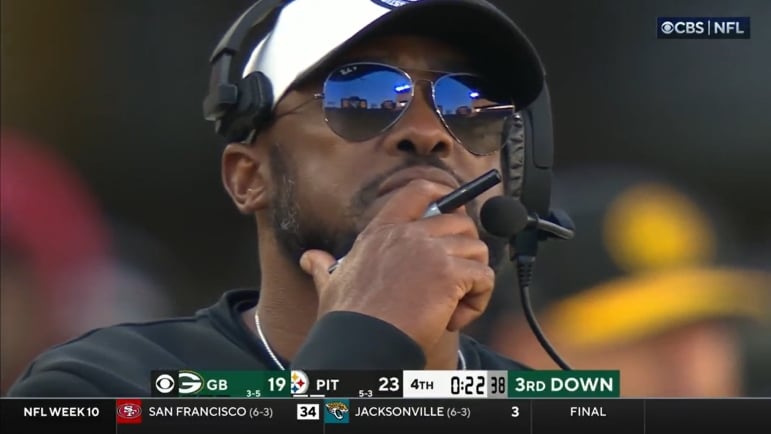A PARABLE:
Once upon a time there was a car accident. The driver in Vehicle A was badly injured, the driver in Vehicle B was not, and a lawsuit ensued. At trial the following evidence was offered:
- A man three blocks east was convinced it must have been Vehicle A’s fault. “If she got injured, she must have caused it.”
- A woman from four blocks east, put it this way. “SHE MUST HAVE CAUSED IT! MUST, MUST, MUST HAVE!!!!!!!”
The judge refused to admit either one into the trial. Such nonsense has no relevance, and the jury that wanted to get it in deserved to be sanctioned.
- A woman three blocks west was convinced it was Vehicle B’s fault. “She got hurt and he didn’t so he must be to blame.”
- A man from nine blocks west frothed at the mouth and screamed… “You get it.”
They didn’t come in either and sanctions work both ways.
- Then came the man who would have said, “I was bird watching from my eighth-floor window and caught the accident out of the corner of my eye.” Furious pretrial fights occurred over that one because it too got excluded. Too tenuous to be probative.
- Then the participants got up to tell their side of the story.
Everyone listed to them with great care, applying appropriate grains of salt. And then came the rest of the trial.
- Four direct witnesses said, in one form or another, “I was at that corner, but my attention was focused on something else until the noise and fury made me look up. But then I clearly saw…”
- Some rebuttal witnesses (like the police interviewer) pointed out how those direct witnesses were a lot less sure right after the fact.
- One man swore that he was right on the corner and watching the whole thing intently from start to finish. That made a stir until the cross examination where he explained that he’d paid such attention because he knew the accident was coming. You see, an angel and an alien had appeared in his dreams to argue about whether a single tin-foil hat would protect a nearby witness from flying debris or whether safety would require two. He’d worn three and thus had been free to pay full attention from start to finish…
Sorry. Couldn’t resist.
- An accident reconstruction team weighed in on the physical evidence.
- Expert mechanics weighed in on the breaks, car weights, and other factors.
- Evidence also came in about the weather, road conditions, etc.
The jury listened to every witness intently, went into a room to discuss their individual impressions, and then returned a verdict.
Courtroom observers like newshounds and other biased observers dropped in and out, but nevertheless formed opinions of their own. Most agreed with the verdict, but some said it was all part of an evil plot that tied in with various other parts of the conspiracy. Guess who sold more papers?
The End.
All very normal, natural, and proper. Right?
Point #1: Don’t be one of those “fans” who bluster and roar despite standing around a corner from many blocks away. I’m standing there with you, and we have no right to an opinion one way or the other. Yes, we have the right to blather on about our prejudices, preconceptions, assumptions, and beliefs about whether angels or aliens makes more sense. That’s free speech. But “opinions” need an actual basis in fact, and we haven’t attained that level. Yet.
Point #2: Fans who want to build a rationale opinion can:
- Listen to the participants. That would be Tomlin, Khan, Rooney, etc.
- Listen to the strong witnesses who were there on the scene. These would be players in the locker room, coaches and other team personnel and others who were there on sight.
- Listen to the rebuttal witnesses – those who talked with the good witnesses in some other context and can pass on what they said offstage.
- Listen to the expert witnesses. These would be analysts, like former coaches, who have seen a whole lot of “accidents” and know how to evaluate the evidence.
- Listen to the jurors; i.e., to local insiders who spend time in the building and pay strict attention to every scrap and nuance.
- And we can listen to the courtroom observers – the equivalent of journalists and pundits who heard some evidence but have obvious questions about their credibility.
We don’t need to take any of those voices as gospel. Indeed, we shouldn’t. Forming a responsible opinion based on second- and third-hand accounts comes with a duty to judge each source. How reliable (or unreliable) is the person we’re hearing? Does she/he make sense in light of the basic facts like accident, injury, time, and place? Does she/he have a bias? Ulterior motives? A history of being credible? Enough expertise to really evaluate the evidence that she/he examined? Does she/he come off as trustworthy based on our experience with other people in other contexts?
Above all, is there a pattern to all those reports? Sometimes more noise is just that: noise. But this is a case where each piece of consistent information reinforces the others. Patterns matter. So do the points that create particular forks in the road.
Anyone who goes through all that does have a reasonable opinion, fan or not. It’s just a tenuous opinion that should be adjusted as information arrives. And it comes with a duty to cite our sources and admit our limitations when anyone asks.
Folks, I don’t claim to “know” if Mike Tomlin is a good coach, a great coach, a tired coach, or an overrated coach. I’d be humiliated if anyone ever heard me make such a claim because I have no right to reach that kind of conclusion. I’m a fan for cryin’ out loud, not a participant in the drama. Audience, not actor!
But I do have an opinion, and I feel okay with it because I have done my best to follow all those steps. And it helps that every witness in the trial – all of them – tell the same story. I find that very compelling. Yes, I feel compelled to constantly reevaluate that opinion. And yes, I will therefore be nothing but grateful to anyone who can show me new evidence one way or the other. We can also go down my citations in the comments if you want.
Beyond that, I will admit to feeling little respect for those who opine from three blocks away when I would be embarrassed to even be accused of such a thing. I also get annoyed at the loudmouths who scream from four blocks away and downright angry at those who froth at the mouth from closed rooms and blind alleys five, six, and seven blocks away. They do no one any good, they cause measurable harm at times, and the loud ones hurt my ears.
So can we please be a little more judicious moving forward? Does anyone disagree with my opinion? If so, why? How close are you (and your sources) to being an actual witness? I’d love to have that conversation and would be grateful for any new light you can shed.








